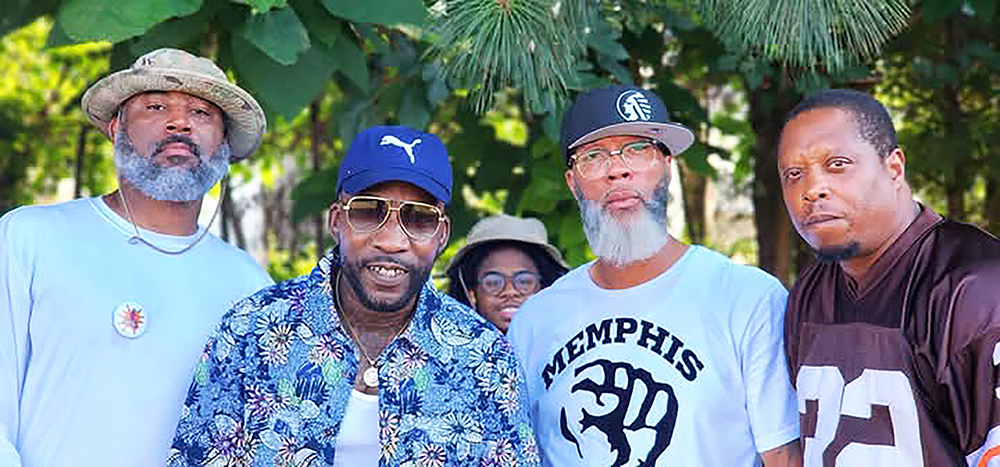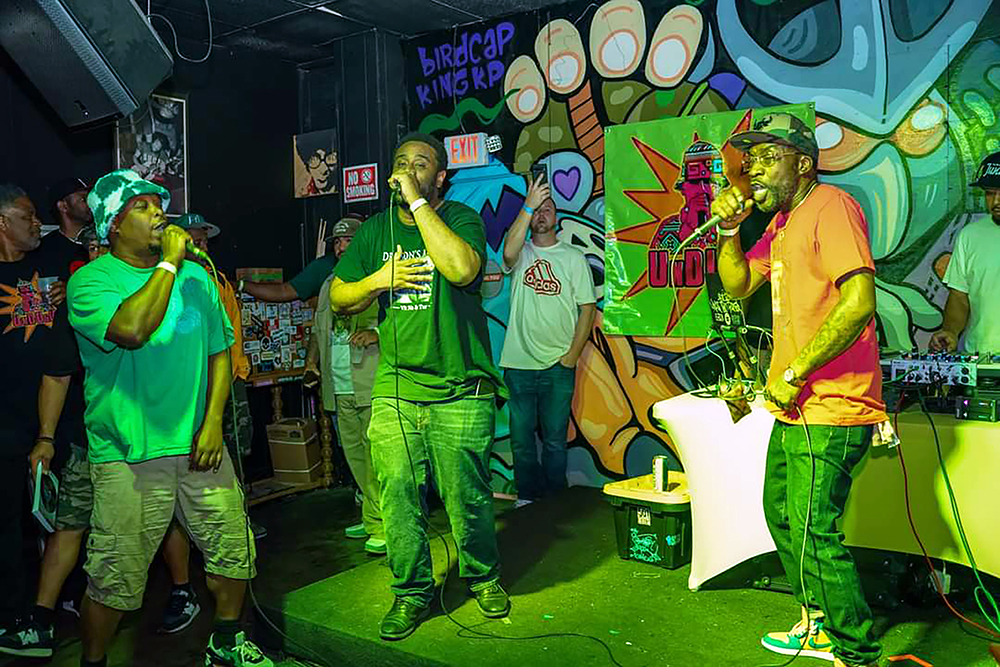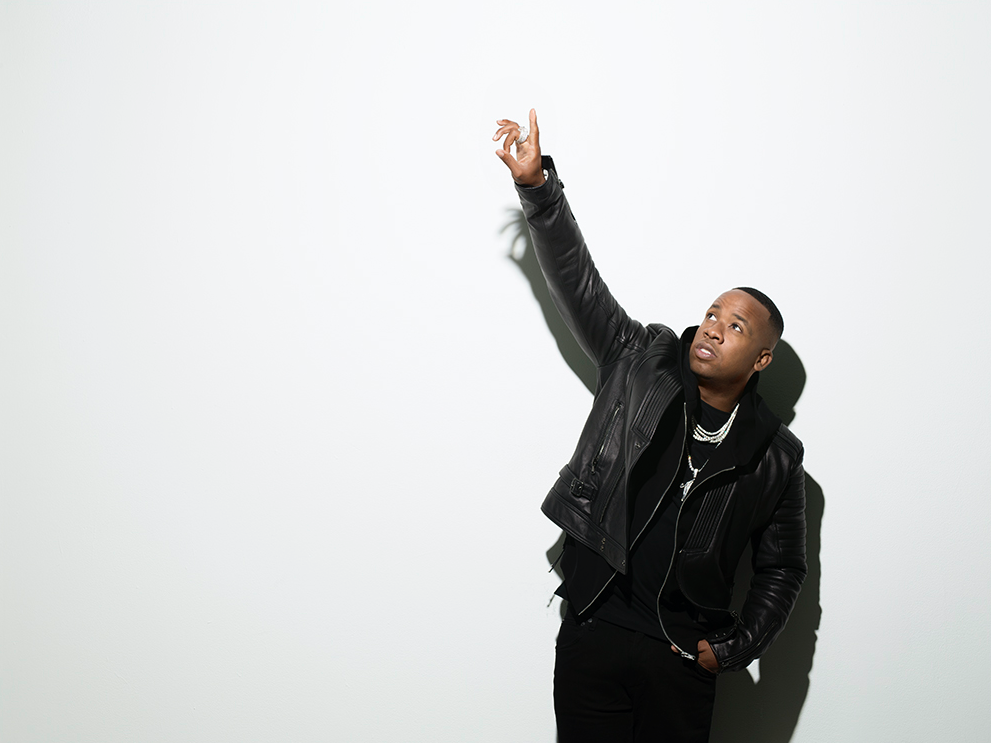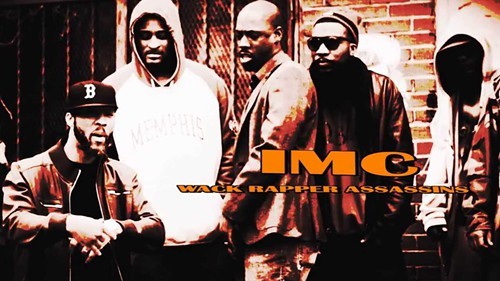Memphis is known for its world-class rappers; trap is the new “Memphis Sound.” But while we might hear BlocBoy JB shout out, “901 Shelby Drive, look alive, look alive,” on the radio, there’s a cohort of lesser known but very active hip-hop artists among us who live and breathe such lyrics, depicting life in our place and time like no others. Does any recent rhyme capture the feeling of living under the weight of this city’s history like: “I rap Memphop, I rap the deep quadrant/I come from the marshes, the shady tree garages/The torn-down projects, the cotton on the barges”?
Some readers will instantly recognize that as a line from “Maybap Music” by Iron Mic Coalition (IMC), as a devoted following has developed around the group over the past 20 years. If you know, you know. Part of that comes down to IMC’s undeniable grounding in this region. That comes across both lyrically and musically, as on 2014’s “Home,” driven by a minor key soul blues sample, with the lyrics: “A stranger in his own land, a Delta blues homeland … Crossroads demon summit, now the blues man cometh with the truth boom bappin’ hell on ’em.”

Indeed, IMC’s music over the years has been full of Southern soul and blues, (or even the tweaked voice of Billie Holiday singing “Gloomy Sunday” on “Crown”). Case in point: the hard-hitting blues guitar lick on their best-known single, “Memphop,” done many years before Al Kapone began experimenting with his own style of blues-infused rap. Clearly, IMC is fully rooted down, devoting a whole track (not just one line of a hit single) to the “901 Area Code” on their 2005 debut.
Skipping back and forth across the decades is par for the course with IMC’s music, as the collective of DJs and MCs have been remarkably true to their vision and consistent in their output for 20 years, across three releases whose titles speak to their shared coherence: The 1st Edition (2005), The 2nd Edition (2008), and The 3rd Edition (2014). These artists have always been playing the long game, as should be clear this Friday, November 29th, at the Stax Museum of American Soul Music, where the IMC will make a rare appearance to celebrate their 20th anniversary, revisiting their debut album in full and hinting at what a fourth work-in-progress might hold in store.
The Memphis Flyer, it should be noted, has been with IMC for the whole ride, starting with Chris Herrington’s 2004 survey of Memphis hip-hop, but as I speak now with IMC member Quinn McGowan, aka The Mighty Quinn, there’s one thing he’d like to clear up about how the group’s been described here in the past. “The popular misnomer was always we were like the Wu-Tang [Clan] of the South, but actually a more accurate description would have been the Native Tongues of the South, right? Because we were always a group of groups. Native Tongues was the Jungle Brothers, Black Sheep, De La Soul, A Tribe Called Quest, Queen Latifah — all those folks kind of wrapped up in a loose association.” The same affiliation of like-minded groups coalesced in Memphis “because we were all doing shows together, right? And we were carving out what would become Memphop, throwing our own kind of shows, with b-boys [breakdancers] and the artists out front. We were adhering to the four elements.”
Those would be the four elements of hip-hop — DJing, MCing, breakdancing, and graffiti art — and the IMC members’ adherence to them as a way of life might explain the collective’s longevity, despite having never blown up coast to coast. Through the decades, the core group of groups, including Fyte Club (General MacArthur, The Mighty Quinn), M.O.S. (Duke, Derelick, and Milk [aka Yasin Allah]), Kontrast (Jason Da Hater, EMPEE, and DJ Capital A), and Fathom 9 (aka Avenging Wind), have continued as a tightly knit cohort, despite Fathom 9’s untimely passing in November of 2014.
“There have always been eight MCs and our DJ Capital A,” says McGowan, before noting the involvement of another stealth participant of sorts. “My son was always a secret 10th member. I drew a future projection of him as a silhouette inside of the eye in the Iron Mic borders.” That was back when McGowan was helping craft the visuals for the fledgling group. McGowan’s son, then very young, uttered the first line of the first IMC release. An upcoming album now in the works will echo that when Eillo, as McGowan’s son is known, now a key player and artist in his own right with the Unapologetic collective, will join the IMC. “Eillo is finishing a verse at the end of the project for the point of the symmetry, right?” says McGowan. “He starts out The 1st Edition. So we wanted to make sure to have him, you know, get his lyricism on to close out The 4th Edition.”
In keeping with the four elements of hip-hop, expect a visual element at Friday’s show as well. McGowan’s other creative outlet is his visual art, including a line of comics called Wildfire, published by his own Legends Press. “My approach to comics is very much rooted to my approach to hip-hop. There’s this lineage of comic books in hip-hop that goes back to Rappin’ Max Robot.” It’s all been part of living the hip-hop life for McGowan, staying true to his vision and offering commentary on the state of the world. (It’s no accident that IMC opened for knowledge rapper KRS-One back in the day). “My band of brothers are a group of men that I have a great deal of respect for, and we try to live the values that we espouse,” says McGowan. And part of that involves embracing the unabashedly local “Memphop” tag, a term McGowan coined when the group began.
“There’s always going to be a culture of hip-hop or Memphop in Memphis. Hip-hop has its own very distinct expression here, even in the ways that we execute those four elements. Our graffiti is different. We have not only have b-boys; we’ve got jookin, right? You can still hear a Southern twang, so to speak. Memphop is bigger than us. So we want to do something that’s dedicated to that. And this thing at Stax is about our own placement in that.”

 Travis Whiteside
Travis Whiteside 


